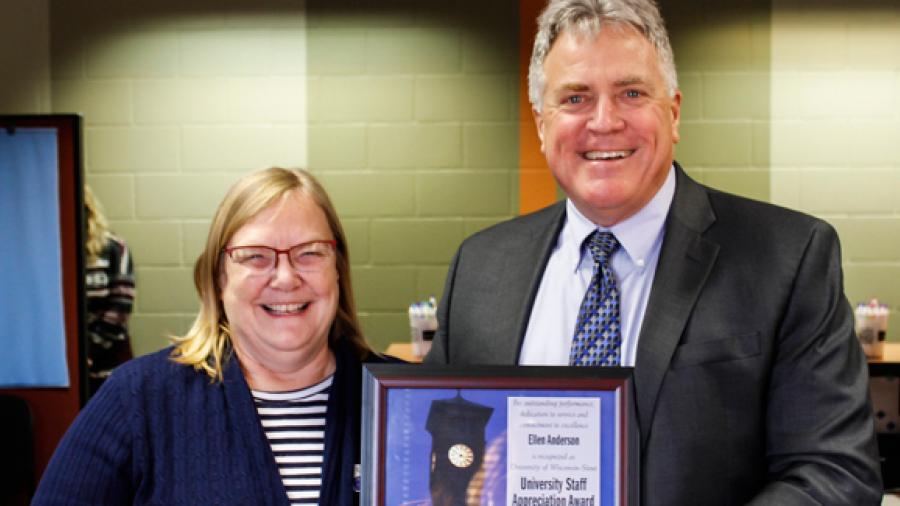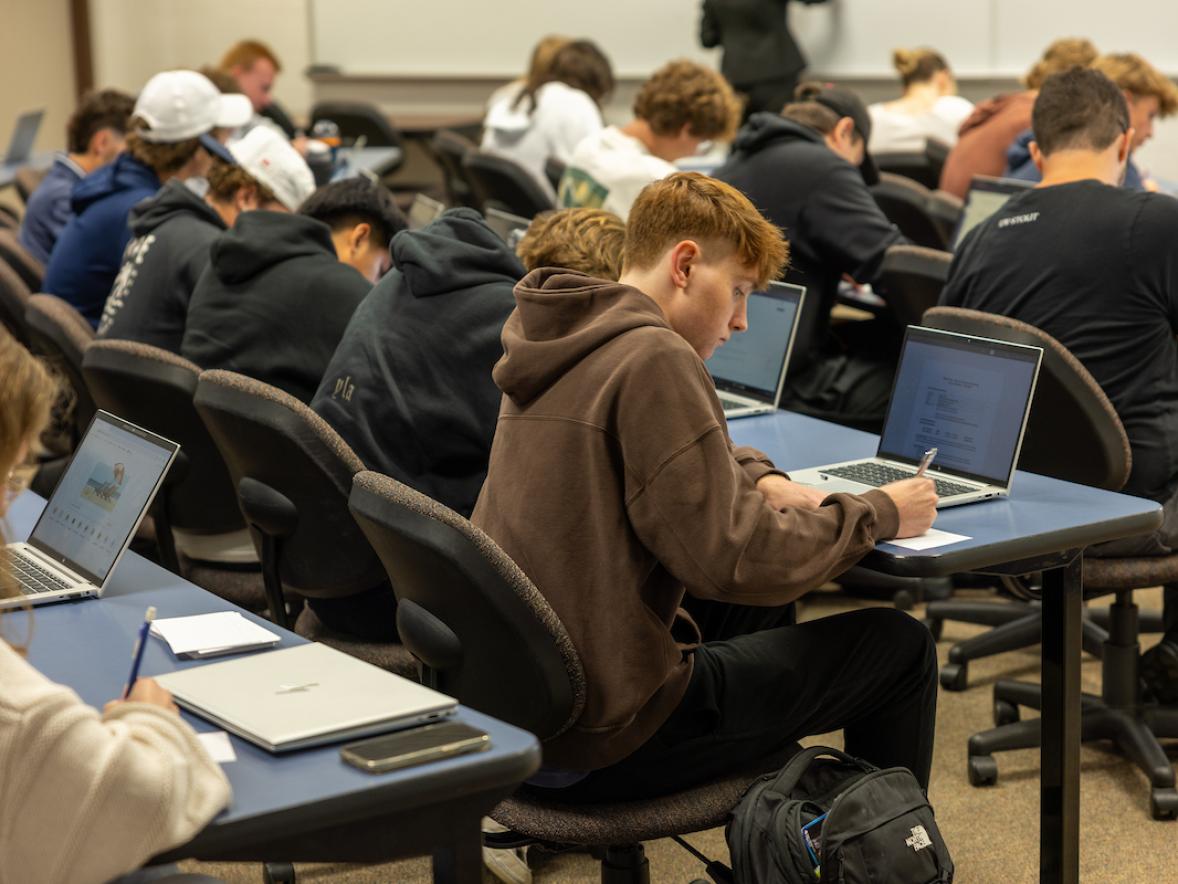
Ellen Anderson has received the University Staff Employee Appreciation Award for December at University of Wisconsin-Stout.
Anderson, of Colfax, is a financial specialist in the Campus Card Office.
Her nomination states: “Ellen shows her commitment by working hard all year round to make sure deposits get delivered. Ellen will jump up from her desk to help customers. She also will go out of her way to help peers who are having problems with any part of their job. She will work extra hours whenever needed. She goes above and beyond to keep the Campus Card Office running while the rest of the office is out preparing the incoming freshmen’s cards.”
Chancellor Bob Meyer presents each winner with a certificate of recognition, a UW-Stout coffee mug and a check for $100.
Students, faculty and staff may nominate a university staff member who demonstrates a commitment to excellence and the university community. The award, now in its 11th year, was established by the Chancellor’s Office.
###
Photo
Ellen Anderson receives the University Staff Employee Appreciation Award for December from Chancellor Bob Meyer.






